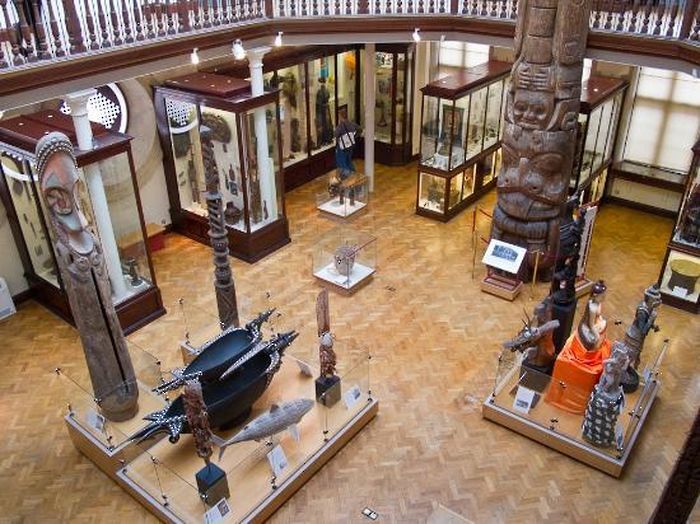This Week in Scientific History – #MuseumWeek
We should recognise and celebrate the importance of museums in practicing and communicating science in the past, present and future

Museum Week, from the 13th to 19th May this year, is an online cultural event that celebrates museums across the world. The week also marks the importance of museums within our society, and points us towards the history of these cultural institutions. Museums of science have been formed from animal and plant specimens, minerals, fossils, new scientific instruments or other curiosities for centuries. They have moved from the collections of the elite to the foundations of ‘everyday science learning’ today.
Collecting items was a way for natural philosophers – early scientists – to construct their own versions of the natural world, and attempt to control and measure it. Over time these collections became research spaces for scientific inquiry, allowing the investigation of fossils or animal specimens in geology and zoology for example. During the nineteenth century, these spaces also opened to the public and new museums were founded, such as those at South Kensington in London. Here in Cambridge, the Museum of Zoology was founded in 1865, drawing together separate zoological collections. Museums like this played a key part of doing science in late nineteenth century universities. In the twentieth century, the sciences moved away from these museum collections and towards experimental studies – but the museums here in Cambridge still provide a key resource to students across geology, zoology and anthropology, as well as other disciplines.
Today, museums of science exist alongside science galleries and science centres. These spaces don’t only put science on display – whether this is in the form of animal skeletons or minerals or hands-on experiments – they create a new kind of science for the public. Science museums should be the site of transformation of visitors into scientists and engineers: explorers of the universe and all of its objects and phenomena.
In this long historical context, it is important to consider how Museum Week, as an online event, exemplifies how today’s museums move regularly move beyond the walls with of their buildings, with roadshows and travelling exhibitions, to engage new communities in science. It is important that museums consider the image they present to these communities, to ensure that the opportunities which they provide will be accessed by all, not just those who are already engaged in such cultural activities. Emily Dawson’s recent work on equity and exclusion in everyday science learning describes how museums of science need to work on disrupting and transforming social inequities through their practice. Science museums should be the site of transformation of visitors into scientists and engineers: explorers of the universe and all of its objects and phenomena.
Attempts to transform the science presented in museums necessitate reconstructing the science and stories exhibited by these spaces. This includes recognising imperialist narratives and supporting decolonisation attempts, as well as widening the representation of the scientific practices and discoverers up on walls and in labels. Museums must recognise their role in re-contextualizing objects taken from their original settings, be this a science laboratory’s equipment or specimens gifted, found or stolen during nineteenth century encounters in ‘exotic lands’ – and return items to rightful owners where appropriate.
Here in Cambridge, the University Museums' Bridging Binaries tours provide one example of exploring alternative narratives through LGBT+ stories – but we must incorporate these approaches into the very fabric of museum spaces. This means recognising the wives and assistants who supported Cambridge’s ‘great men of science’, and demonstrating how science always occurs within communities, which should be accessible to all. Science museums construct the science of the past and present for their audiences, and play a key role in making the science of the future.
 News / Caius mourns its tree-mendous loss23 December 2025
News / Caius mourns its tree-mendous loss23 December 2025 News / Clare Hall spent over £500k opposing busway 24 December 2025
News / Clare Hall spent over £500k opposing busway 24 December 2025 Comment / Yes, I’m brown – but I have more important things to say22 December 2025
Comment / Yes, I’m brown – but I have more important things to say22 December 2025 Interviews / Politics, your own way: Tilly Middlehurst on speaking out21 December 2025
Interviews / Politics, your own way: Tilly Middlehurst on speaking out21 December 2025 Comment / The ‘class’ of Cambridge24 December 2025
Comment / The ‘class’ of Cambridge24 December 2025








